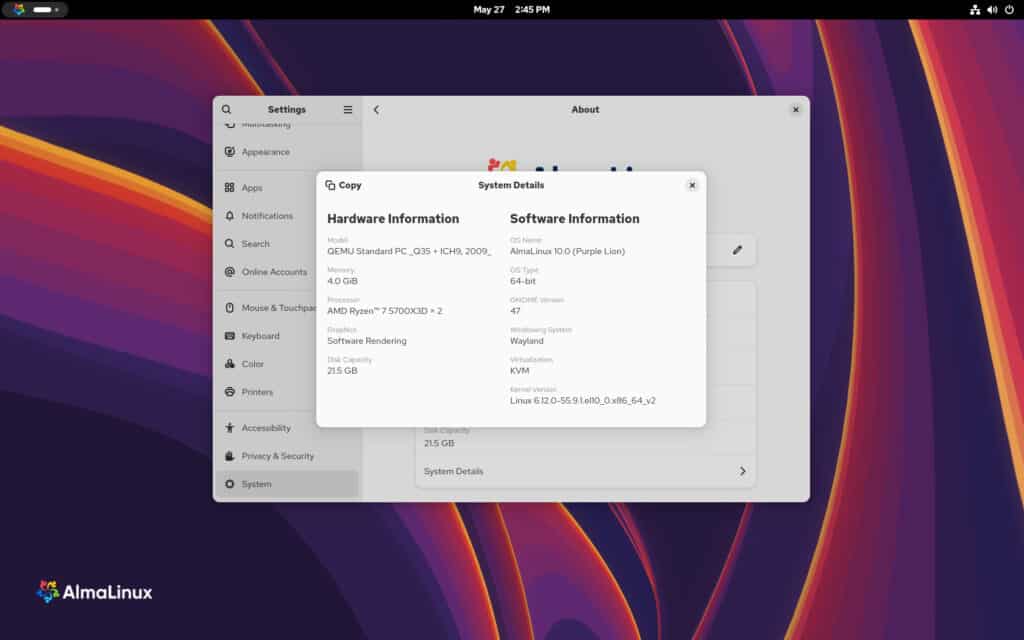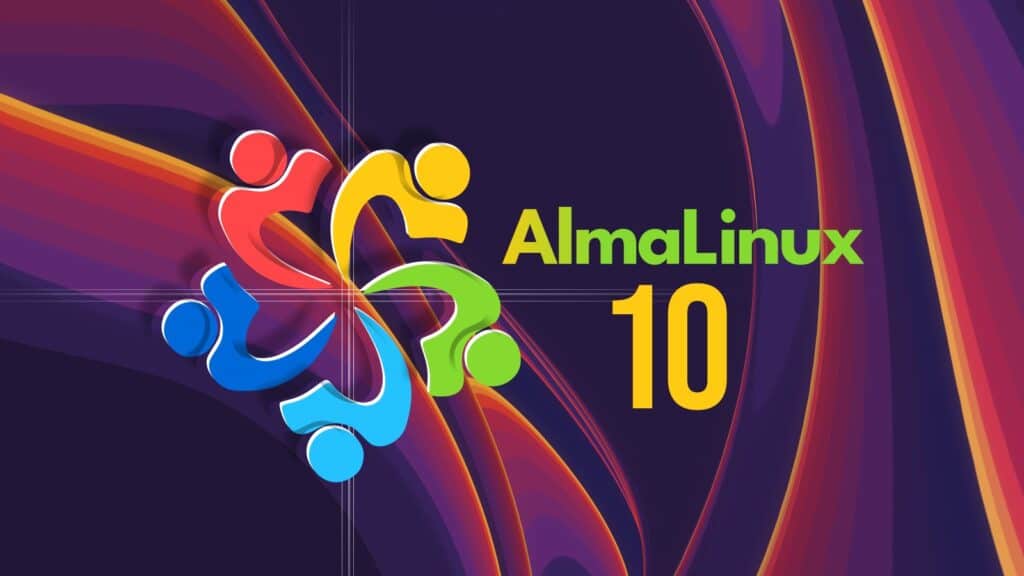Exactly a week after the RHEL 10 release, the AlmaLinux OS Foundation has officially announced the availability of AlmaLinux OS 10 “Purple Lion,” powered by kernel 6.12, providing a reliable, fully RHEL-compatible Linux experience.
Building on the brand-new AlmaLinux OS Kitten upstream, AlmaLinux OS 10 introduces notable improvements tailored for developers and users of diverse hardware configurations. One major upgrade is the inclusion of frame pointers enabled by default, facilitating advanced system-wide real-time tracing and profiling.
Addressing hardware compatibility, AlmaLinux OS 10 notably extends support for older CPUs, offering x86-64-v2 architecture binaries alongside the default x86-64-v3 builds inherited from RHEL 10. Thus, continuous security updates for users reliant on legacy hardware will be ensured for an additional ten years.
Furthermore, the AlmaLinux team has re-enabled support for the Simple Protocol for Independent Computing Environments (SPICE). This revival addresses user demands since its removal in RHEL 9.0, reinstating comprehensive server and client application support.
The new release also advances security by supporting Secure Boot not only for Intel and AMD platforms but also for ARM architectures—an increasingly popular requirement for both physical and virtualized infrastructures.

For developers, AlmaLinux 10 comes packed with updates to dynamic programming languages such as Python 3.12, Ruby 3.3, Node.js 22, Perl 5.40, and PHP 8.3. Developers and system administrators will also benefit from the latest versions of popular control systems, including Git 2.47 and Subversion 1.14.
Web servers Apache 2.4.62 and Nginx 1.26, alongside proxy caching servers Varnish 7.6 and Squid 6.10, have been refreshed to offer improved performance and stability. Additionally, database servers have seen substantial upgrades, including MariaDB 10.11, MySQL 8.4, PostgreSQL 16, and Valkey 8.0, providing a robust platform for diverse data workloads.
The system toolchain also receives a major update with GCC 14.2, glibc 2.39, Annobin 12.92, and binutils 2.41. Enhanced performance tools such as GDB 14.2, Valgrind 3.24, SystemTap 5.2, Dyninst 12.3.0, elfutils 0.192, and libabigail 2.6 enable deeper insights and debugging capabilities. Performance monitoring has been upgraded with PCP 6.3.2 and Grafana 10.2.6. Compiler toolsets included LLVM 19.1.7, Rust 1.84.1, and Go 1.23.
It’s worth noting that AlmaLinux OS 10 introduces a tech preview of KVM virtualization support for IBM POWER systems, fulfilling specific needs from major community contributors like the Oregon State University Open Source Lab. In addition, the distro re-enables compatibility for over 150 devices excluded upstream, as further detailed in the official release notes.
For users keen on cloud and container solutions, AlmaLinux OS 10 has a variety of offerings that are ready for deployment shortly. These include live media images, comprehensive container solutions, and optimized cloud images for major providers like AWS, Azure, Google Cloud, and Oracle Cloud. There is also support for Raspberry Pi and Windows Subsystem for Linux.
Lastly, to ensure system security and performance, AlmaLinux OS 10.0 includes cutting-edge enhancements like post-quantum cryptography, updated SELinux policies, and improvements to OpenSSH.
Refer to the release notes for a comprehensive look at all changes and improvements.
Important! At this time, upgrades from AlmaLinux 9 to the newly released AlmaLinux 10 are not yet (fully) supported. The team is actively working on adding stable support for version 10 within the ELevate Project and its migration tool.
Users eager to make the jump are advised to hold off for now, as official upgrade paths are still in development and will be made available soon. As soon as it becomes available, as always, we’ll be one of the first to walk you through it step by step in a dedicated guide we’ll share right here.
